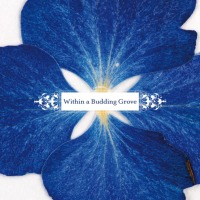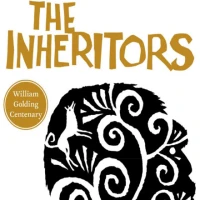Venices, by Paul Morand
I recently purchased Against Venice, by Rene Debray (I’m reading it at the moment in fact). It’s a sort of diatribe against Venice, and more to the point against those who romanticise it. I love Venice, and I trust Pushkin Press and they published the Debray, how could I resist?
Before I bought the Debray, I had a look online for reviews, and the only one I found mentioned it was written in part in response to Venices, by Paul Morand. I’ll come back to that when I write up Against Venice, but the temptation of reading an argument and counter-argument was too much for me, and I bought Venices too.
Venices is also published by Pushkin Press, with an excellent translation by Euan Cameron. It was written back in 1971, when Morand was in his eighties, and it’s a rather melancholy work as a result. It’s a contemplation of his life, of the things he has seen and the people he knew – all of it tied to his recollections and experiences of Venice over the years. Venices then is not really about Venice, or at least is only in part about Venice. Rather, like Antoine de Saint-Exupery’s Wind, Sand and Stars it’s a sort of meditation. As Morand says:
Venice has not been my entire life, but she constitutes a few fragments of it that are otherwise disconnected; her tide marks fade away, mine do not.
The difficulty with this sort of work is it’s only as enjoyable, as interesting, as it’s well written (not true of all books, as Stephen King will attest). Debray, in his book, refers to Morand as “quicksilver”, which isn’t far off. Morand is often witty, clever, sometimes even rather beautiful if always a little detached. However, there are times when the prose seemed to me simply overwrought, when I grew tired of his constant namedropping, when he simply annoyed me. In the end, I enjoyed it, but not without reservations. Here’s the opening two paragraphs:
All of our lives are letters posted anonymously; my own bears three postmarks: Paris, London and Venice; fate, often unwittingly, though certainly not thoughtlessly, has decreed that I should have settled in these places.
Within her restricted space, Venice, situated as she is in the middle of nowhere, between the foetal waters and those of the Styx, encapsulates my journey on earth.
That second paragraph is, for me, a précis of what can be infuriating about this kind of work. In what possible sense is Venice situated next to the waters of the Styx? Clearly, Morand is being poetic, but even so does this actually make any sort of sense? I’m not personally persuaded it does, and it’s not the only passage of that nature by any means.
Coupled with that, Morand uses on two separate occasions the repugnant phrase “the white race”, regretting the lack of a peace treaty between France and Germany in 1911 and later complaining of the loss of what he regards as the old pride that helped Europe fight the Turks. His view is that Europe is declining, that he is passing into old age but that the civilisation of which he formed part has preceded him, perhaps is already the grave. It is an ugly element, and given Morand’s service in the Vichy regime (the period following June 1939 until 1950 is noticeably absent from a text that otherwise largely proceeds in chronological order, year by year) and an apparent sympathy for fascism it makes him in some ways a rather uncomfortable travelling companion.
So, I’ve accused Morand of namedropping, occasional pretension, of racism and fascist sympathies, I should add that he’s also a huge snob and a man who while claiming his family not to be exceptional makes sure to include sufficient anecdotes to make it plain quite how refined, wealthy and connected they in fact were:
… occasionally, in the evening, I would hear [my father] say to my mother: “I’m going to the opera, in Mme Greffulhe’s box; put some money (he never counted in louis d’or, that was mundane) in my waistcoat pocket, in case she asks me to take her to supper at Paillard’s.”
On top of all that, he rarely fails to illustrate how brilliant he himself is, noting that as a child he learned nothing from school and scorned the classic authors, instead discovering for himself Shakespeare, Schopenhauer, Zola, Maupassant, Huysmans (and mentioning, by the by, that his father translated Hamlet for Sarah Bernhardt).
And yet, and yet. He has insight. He points out how much his schools did not attempt to teach, how vast some of the gaps they left were. Like him, I was not taught in school about Byzantium (I don’t think it was ever mentioned), or of China and the far east, I wasn’t taught economic geography or the history of art, my education like his and like that of most of us was patchwork and many of the gaps are essentially ideological. To include in an education a history of the Kings and Queens of England, but to leave out the history of the gold standard, is to make a political choice. Suddenly, Morand has me thinking.
As the book continues, it improves. Once Morand has established his background, he reaches the 1920s and his days with some of the brightest (and most fashionable) minds of Europe. He is not quite gossipy, but he is proud of what he sees as a flowering of greatness and is always happy to share details of who he spent those days with. His descriptions are well written, illuminating, often again exasperating (did Morand know nobody in trade? Of course not, he knew artists, actors, thinkers, the consequenceless rich), but his tone kept me reading. Morand sees himself as a forerunner of modern (1971) youth, an avant-garde of the teenage entitlement that was to follow, he rather approves of the young of the age he now finds himself in, with their insistence on the importance of leisure and their desire to live according to its own terms. All he truly objects to is their age, which he envies, and their occasional lack of manners.
Morand is conscious of quite how much history he’s seen, how much he’s lived through and seen fade away. To pass time with this book is to pass time with an elderly man, one in full command of his faculties who has lived through remarkable events and wishes to tell you of them. Not all he has to say is palatable, or even interesting, but this was real and it is fascinating to hear of it and to share the perspective of someone who has outlived his world. It is that awareness that gives the book its elegaic tone, Morand’s world died with the second world war and he knows that, he knows it’s not coming back. Worse, his prejudices make his present bleaker than perhaps it truly was, Europe today continues and isn’t doing too badly, for Morand it was finished. The final chapter ends with a description of Morand selecting his tomb, viewing the site and speaking of where he “shall lie, after this long accident that has been my life.” It is not an ending written by a man who continues to have hope in the future.
Still, there is no sense Morand resents those who follow him. He simply sees this as our world now, not his, he is saddened by the loss of what was but he does not blame us for being what we are (in the main, anyway, there is the odd bout of irritability – he is distinctly ambivalent on the changing role of women for example).
Structurally, Venices is an unusual work. Each chapter is simply a date and some observations. Sometimes a whole chapter consists of just one paragraph, sometimes it runs on for pages, at times he just brings the past to life as here just after the war:
On the quaysides, French officers were sampling long virginia cigarettes that were perforated with straws; in the Red Cross lorries, wounded Senegalese soldiers sitting side by side with Neapolitans in their hospital gowns mingled with bersaglieri, shorn of most of their feathers, with Austria prisoners of war, Tyroleans wearing grey-blue uniforms, and with carabinieri who had exchanged their cocked hats for a helmet rather like Colleone’s; Russian prisoners who had been returned by the Austrians were sweeping the docks with brooms made from leaves of maize; on walls, menacing posters ordered deserters from the Caporetto to rejoin the 4th Corps or risk being “shot in the back”.
At others, he comments directly on how he sees the world, as it was or as it is now:
These Leicas, these Zeiss; do people no longer have eyes?
And then, sometimes, he writes simply and beautifully about the city he loves above all others, as here:
1970
An overcast October sky this morning; an opaline grey, the colour of old chandeliers, so fragile that they sell marabou feathers with which to dust them.
I was in Venice this weekend, and the sky was that colour. I looked up from the book, and it was there.
In an afterword, the art critic Olivier Berggruen describes Venices as leaving the reader with a sense of “melancholy, elegance and poise”. He’s right. What I would add is that on occasion Morand is also funny, generous, thoughtful and genuinely challenging. Yes, he’s an elderly racist and was a wartime collaborator, but he writes with unusual skill and much of what he says is worth hearing. I enjoyed this book, I often felt that I shouldn’t, but I did. I’m glad I read it.
I’ll be buying more Morand. I doubt I would have liked him, he was a bigot and a snob, and I doubt he particularly would have liked me, but for all that his book deserves its translation and its native acclaim and if you can separate the man from the work (peculiarly hard with a work of this nature, which is after all about the man) then it’s fair to say it’s a remarkable achievement. It’s beautiful, despite its many blemishes, and it is profoundly human. It’s just a shame that Morand lacks Saint-Exupery’s gift of seeing the humanity in everyone else, not just in one’s social equals.
Art does not make a man good, it is no guarantee of virtue in the artist, rather it is simply a good in itself. Venices is good art, even though Morand was not a good man.













I have loved these Morand essays — I’m waiting for North American release of Hecate and Her Dogs (only six days to go) so these posts are much welcomed. From what you have said, Morand is a very interesting study — I’d agree he is not someone who I would want to know but I am still interested in what he has written. Thanks for these perceptive essays.
I just placed an order for Hecate this morning Kevin, I’m looking forward to it myself.
There’s a review of Morand’s book The Allure of Chanel, here http://lizzysiddal.wordpress.com/2009/10/21/the-allure-of-chanel-paul-morand/, which is worth having a look at.
Excellent review. Bravo.
Pingback: toasting the Chinese at the Florian « Pechorin’s Journal
Pingback: Hecate and Her Dogs, by Paul Morand « KevinfromCanada
Hello. It was the Debray (which I’ve yet to read) that led me to this book, just as with you. Third book by Morand I’ve read, and perhaps my favourite; I especially like its being something of a hodge-pedge and its wistfulness.
I tend to disagree with you on a few things: I didn’t come upon anything that smacked of name-dropping or of the sort of snobbery you mention; I think Morand spoke so often of artists and aristocrats simply because he was reared in and continued to live in a mileu that contained them. As for the snobbery, again I felt he was simply speaking matter-of-factly about familiar though often out-dated ways.
Thanks for the review. I’m looking forward to exploring this iste.
The Debray is well worth reading. Which other Morand’s have you read? I have two more of his as yet unread, and I’m slightly saddened to hear this may be the best, though it is exceptionally good so I’m also not necessarily surprised.
I love people disagreeing. A book that isn’t worth disagreeing about probably isn’t worth reading, except perhaps as light entertainment. It’s a little too far back for me now to remember clearly why he struck me as a snob, though obviously he did, but it didn’t make me dislike the book any. It was more that I thought for some it might be a barrier. Beautiful writing though. Silvery.
Thanks for commenting by the way, particularly on an older review. It’s always nice to see them pop back up again.
Pingback: “Love is a dangerous territory for athletes.” | Pechorin's Journal
Pingback: Why can’t we kill thoughts the way we kill people, with a gun? | Pechorin's Journal